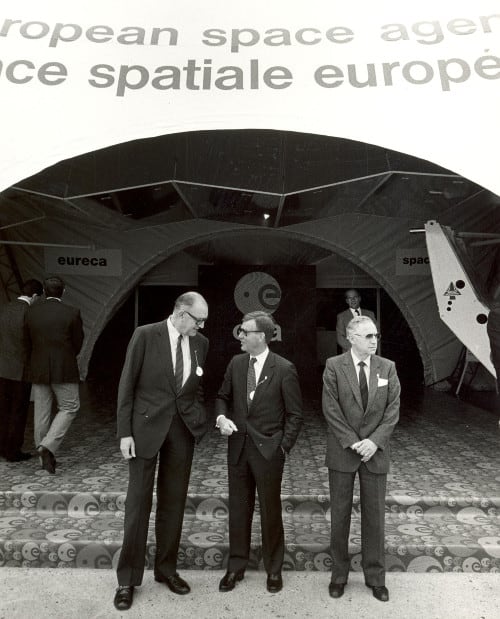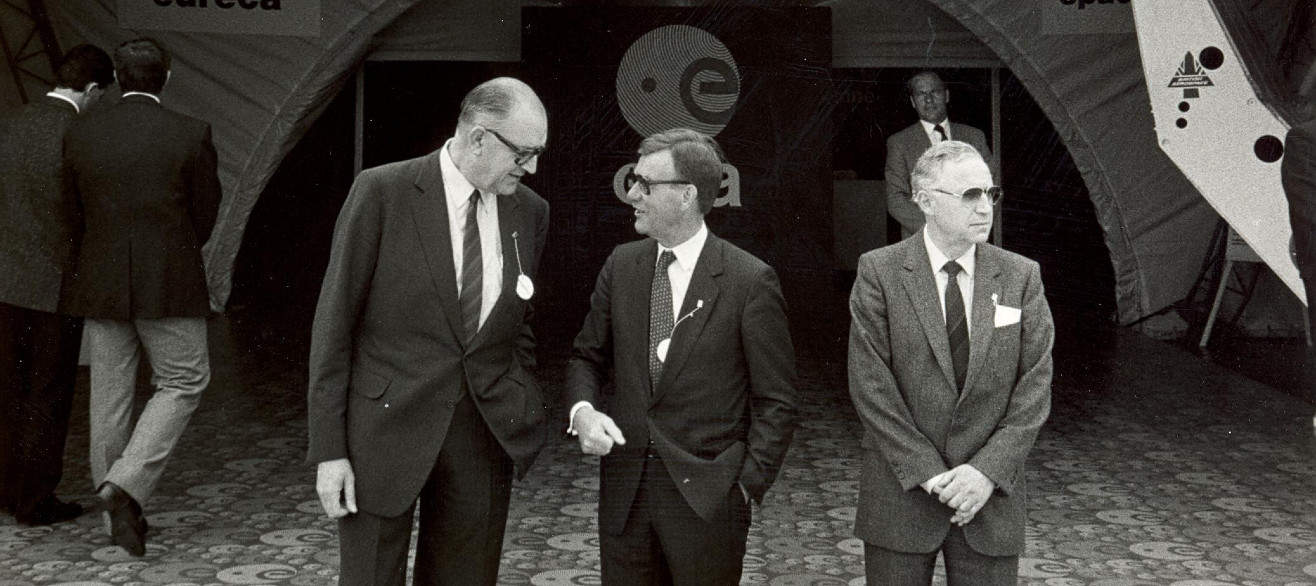Professor Reimar Lüst, the space pioneer who served as ESA’s third Director General from 1984 to 1990, was born on 25 March 1923. To mark this centenary, and to continue the story of Lüst’s involvement with ESA (started with February’s Object of the Month on our homepage), an English-language translation of a 2010 interview with him has been just published by our colleagues at the Historical Archives of the European Union, as part of the Oral History of Europe in Space project.
 The interview, conducted by Professor Helmuth Trischler from the Deutsches Museum in Munich took place in September 2010, at Professor Lüst’s home in Hamburg, and the conversation took place in the participants' native German. Now, for the first time, non-German speaking readers can consult an English transcript of the complete dialogue, covering biographical details such as his formation and career path into space and touching on the many collaborative relationships with his European and American contemporaries in and after the years of the Sputnik shock and the space race.
The interview, conducted by Professor Helmuth Trischler from the Deutsches Museum in Munich took place in September 2010, at Professor Lüst’s home in Hamburg, and the conversation took place in the participants' native German. Now, for the first time, non-German speaking readers can consult an English transcript of the complete dialogue, covering biographical details such as his formation and career path into space and touching on the many collaborative relationships with his European and American contemporaries in and after the years of the Sputnik shock and the space race.
Lüst talks in detail about his many roles within COPERS, ESRO, ESA and the Max Planck Society; the intricate European politics, power plays and alliances; and the major scientific debates of the day. The conversation also touches on his barium cloud experiments of the 1960s, which we believe we’ve found documented in our SHIP database of historical pictures collections (search for ‘Skylark payload’). And readers will also find some less obvious topics, such as the efforts in post-war Germany and Europe to attract émigré scientists back to the continent and Lüst’s unofficial rundown on the merits of the various West German Research Ministers of the 1970s and 1980s.
The interview is published in collaboration with our colleagues at the Historical Archives of the European Union, hosted at the European University Institute in Florence. HAEU’s website hosts the full collection of material available to researchers and historians from the Oral History of Europe in Space project, including transcripts of almost 60 interviews with many of the important players from ESA Member States from the formative years of the Agency, capturing their memories and experiences. Interviewees include those working in ministries, space agencies, scientific institutes and industry and, of course, for ELDO, ESRO and ESA.
Together with our Space Glossary of personalities, this is a valuable resource for getting to grips with, and researching, the ‘who’s who’ of the first decades of European cooperation in space. It's extremely fitting that we highlight this material while talking about Reimar Lüst, since the wider ESA History project, from which the oral history project came about, and our collaboration with HAEU, was initiated under his mandate as ESA Director General.
We commemorate his passing, just under three years ago, on 31 March 2020 and celebrate his life, the contribution he made to space in Europe over more than 50 years and his ongoing legacy.
